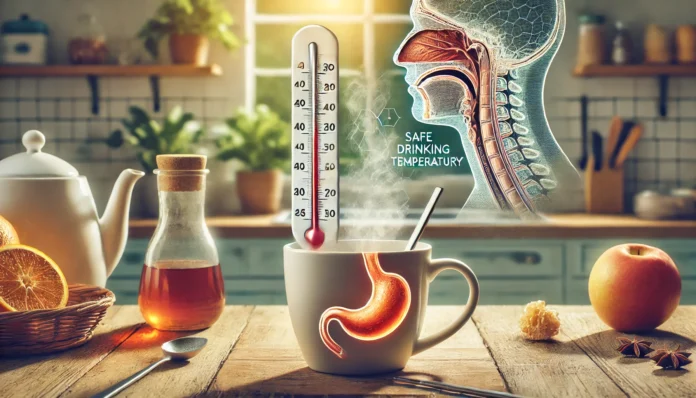There’s nothing quite like a steaming cup of tea to start the day or unwind in the evening. However, recent research suggests that consuming beverages at high temperatures may increase the risk of esophageal cancer. Let’s explore this connection and how to enjoy your favorite drinks safely.
The Heat of the Matter
What is Esophageal Cancer?
Esophageal cancer affects the esophagus—the muscular tube that transports food and liquids from the mouth to the stomach. The two primary types are squamous cell carcinoma and adenocarcinoma. Risk factors include smoking, heavy alcohol consumption, and now, potentially, the temperature of consumed beverages.
The Role of Hot Beverages
Studies have found that regularly consuming very hot beverages can damage the esophageal lining, leading to inflammation and an increased risk of cancer. For instance, research in Iran showed that drinking 700 ml of tea daily at temperatures of 60°C (140°F) or higher was associated with a 90% higher risk of esophageal cancer compared to cooler tea consumption.
Understanding the Risks
Temperature Thresholds
The World Health Organization classifies beverages consumed at temperatures above 65°C (149°F) as “probably carcinogenic” to humans.
This classification stems from studies indicating that high-temperature drinks can cause thermal injury to the esophageal lining, potentially leading to cancer over time.
Global Perspectives
Regions with traditions of consuming very hot beverages, such as parts of South America, Asia, and East Africa, report higher rates of esophageal cancer. In these areas, drinks like tea and maté are often consumed at temperatures exceeding 70°C (158°F), correlating with increased cancer incidence.
Safe Sipping Practices
Cool It Down
Allow hot beverages to cool below 60°C (140°F) before drinking. This simple step can significantly reduce the risk of thermal injury to the esophagus. Adding cold milk or letting your drink sit for a few minutes can help achieve a safer temperature.
Mind the Quantity
Moderation is key. Limiting the intake of very hot beverages can decrease potential risks. Opt for smaller servings and avoid refilling immediately to allow cooling time.
Be Aware of Other Risk Factors
Combining smoking and heavy alcohol consumption with hot beverage intake can compound the risk of esophageal cancer. Adopting healthier lifestyle choices, such as quitting smoking and reducing alcohol intake, can further mitigate this risk.
Conclusion
While enjoying hot beverages is a cherished ritual for many, it’s essential to be mindful of their temperature. Allowing drinks to cool to a safe level can help protect the delicate tissues of the esophagus and reduce cancer risk. By adopting these simple precautions, you can continue to savor your favorite hot drinks safely.




